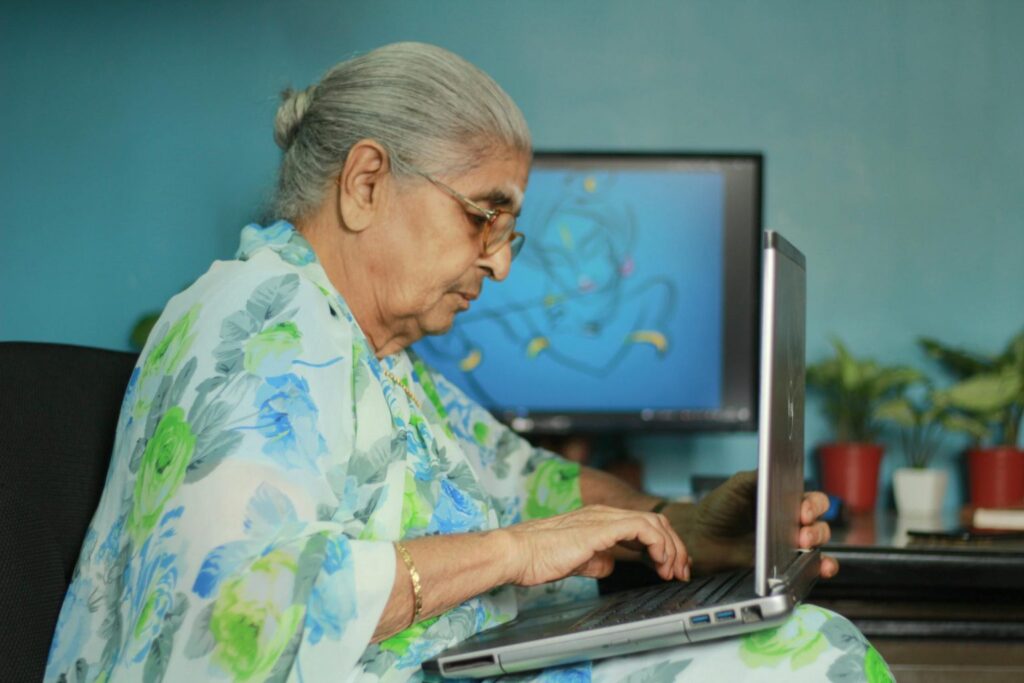About Ms. Arasi Arul
Serial Entrepreneur | Investor | Founder, 60Plus Global | Member, Human Rights Commission, Government of India
Arasi Arul is a dynamic and visionary force in India’s startup ecosystem.
Coming from a business family, Arasi began her entrepreneurial journey with an early startup that did not succeed—but she used that experience to build her next venture, Zha (ழ) Café, the world’s first Tamil-themed coffee shop.
The café’s success laid the foundation for a career dedicated to building businesses rooted in culture, community, and care.
A computer science engineering graduate with an Executive MBA from LIBA, Arasi has since launched multiple impactful ventures.
These include Chisel Factor Foundation, which empowers women and children, and 60Plus Global, which redefines eldercare through community engagement. She is also the founder of TN W.O.M.E.N, an investment platform for women-led startups, and is actively involved in temple conservation and global consulting through the Oli Consulting Group.
Her work has earned her accolades from Forbes India, FICCI, and CII, among others, and she has represented India at global forums including Startup India, UN Women, and Slush.
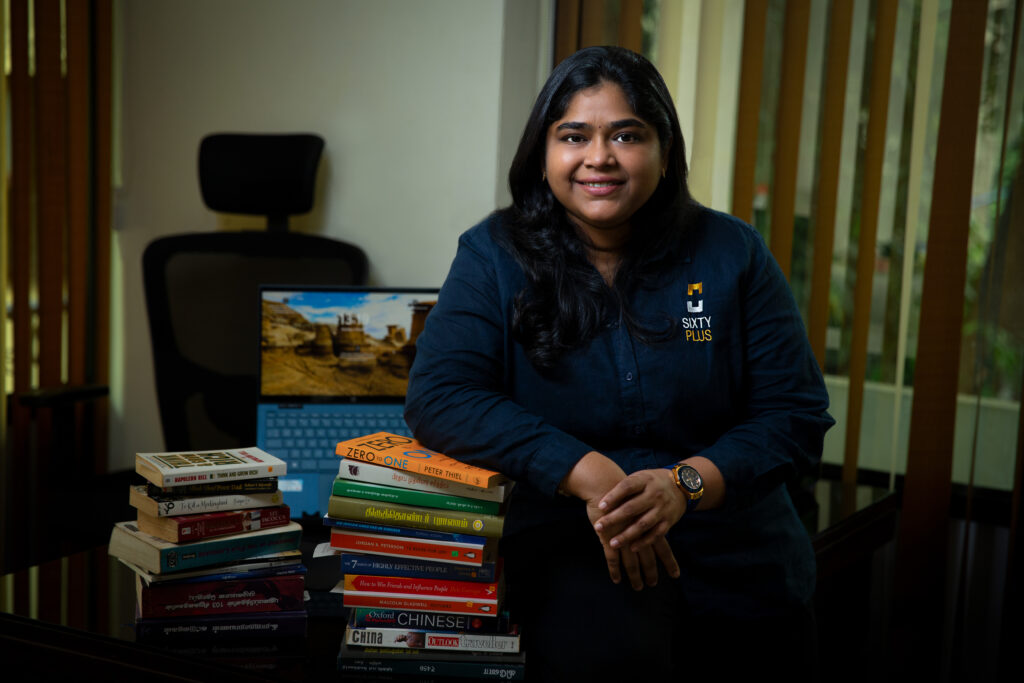
Shrilaxmi: Can you tell us a little about your personal journey and what inspired you to start 60Plus India?
Mrs. Arasi Arul: I come from a business family, so entrepreneurship was always in my blood. My first startup actually failed—but it was a powerful teacher.
I took those lessons and started Zha Café, the world’s first Tamil-themed café. It did well and gave me confidence to keep building businesses that reflect our culture and address real needs.
During the pandemic in 2021, I saw senior citizens struggling—especially those with children abroad. That’s when I launched a service-based model where families from overseas could book services through our app for their parents in India.
It worked very well—we raised funds in under a year.
But as I started interacting directly with our 5,300+ users, I realized something deeper. Most of them were bedridden—and yet, they were just around 62 to 73 years old.
The real problem wasn’t illness. It was loneliness. That discovery made us completely pivot from healthcare services to community engagement, and 60Plus Global was born.
Shrilaxmi: What is the current mission of 60Plus India (now 60Plus Global)?
Mrs. Arasi Arul: We now aim to bring joy, companionship, and lifelong learning to seniors. We don’t just provide services—we create a community. Right now, we have 1,100 seniors regularly engaging with us.
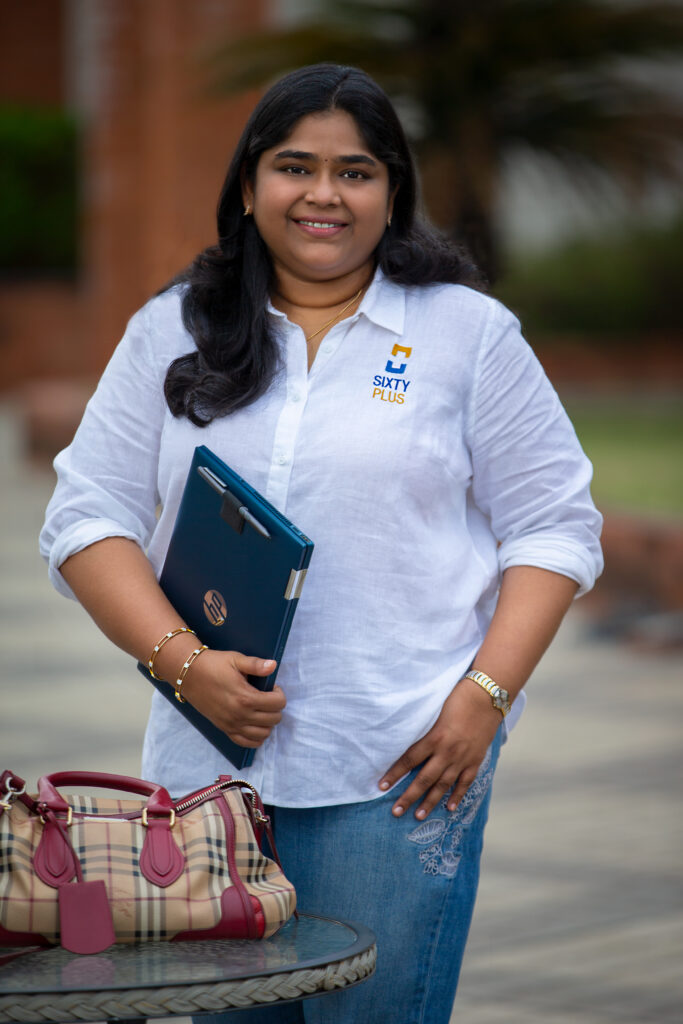
Shrilaxmi: What makes 60Plus Global different from other eldercare platforms? Mrs. Arasi Arul: We chose not to be just another service provider. We don’t compete with others offering medical visits or companions. We focus on what nobody else does—entertainment and emotional well-being for seniors. That’s our niche.
Shrilaxmi: How do you now deal with caregivers and families?
Mrs. Arasi Arul: We don’t work directly with caregivers anymore. If a family needs one, we pass on contacts from our vendor network, but we don’t coordinate or manage these services ourselves.
Shrilaxmi: Do you see a role for families in supporting your mission?
Mrs. Arasi Arul: Commercially, they could subscribe to our programs, and we’ll take care of their parents.
Honestly though, if you’re not physically there, the least you can do is enable professionals to step in. Sometimes, you just need to get out of the way and let trained people help.
Shrilaxmi: Which innovations or services have been most appreciated by the seniors?
Mrs. Arasi Arul: The tech learning programs surprised us. Seniors are eager to learn! They attend classes on how to use IRCTC, Zomato, YouTube—even how to create digital content.
They have a deep thirst for knowledge. We used to think they didn’t want to use tech, but they’re very enthusiastic.
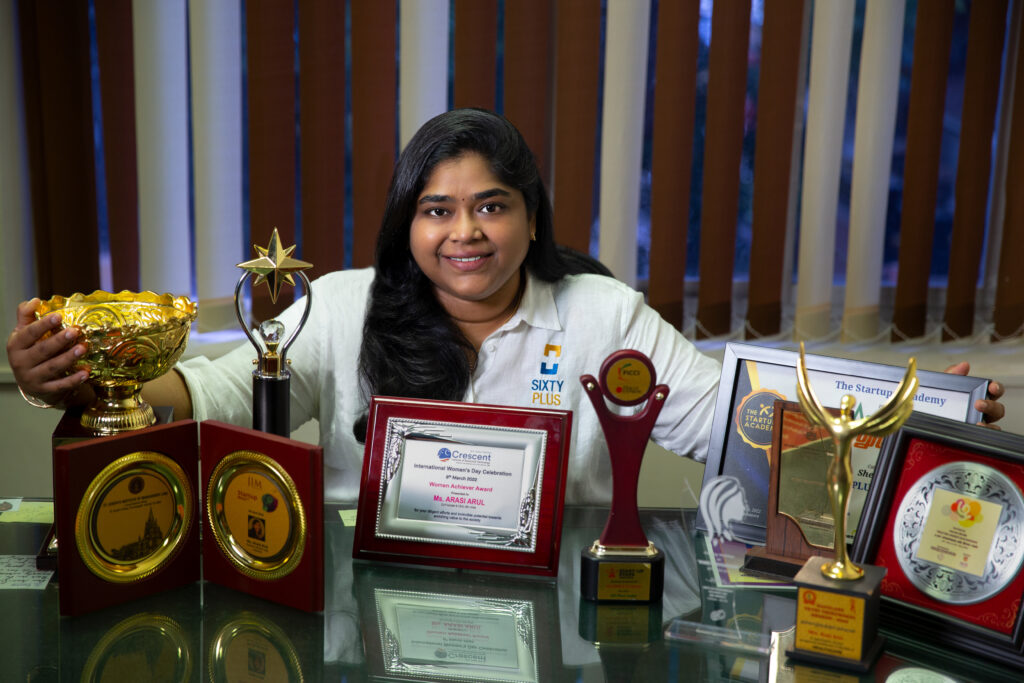
Shrilaxmi: What role does technology play in your approach?
Mrs. Arasi Arul: For us, tech is an enabler. The human element is always at the forefront. We say it proudly—“Less AI, More Human.” Tech makes things easier, but connection is the real goal.
Shrilaxmi: What were the biggest challenges in building 60Plus?
Mrs. Arasi Arul: One major challenge was dealing with unprofessional vendors—nurses, attendants, and others in blue-collar roles. There’s a huge lack of professionalism in these areas, and I found it very difficult to manage.
This isn’t unique to eldercare; it’s true across sectors involving blue-collar labor in India.
Shrilaxmi: What were some early lessons you learned?
Mrs. Arasi Arul: Trying to do everything myself was a mistake. I learned to listen more and delegate better.
Also, listening deeply to customers changed everything for us. That’s how we discovered the loneliness epidemic and pivoted successfully.
Shrilaxmi: What’s next for 60Plus Global?
Mrs. Arasi Arul: The silver economy is booming, and I want 60Plus to hit $1 million in revenue this year. That’s my goal. As more Indian families have only one child—especially in the South—and as that child moves abroad, the need for our services will only grow. Adoption may take time, but the market will mature soon.
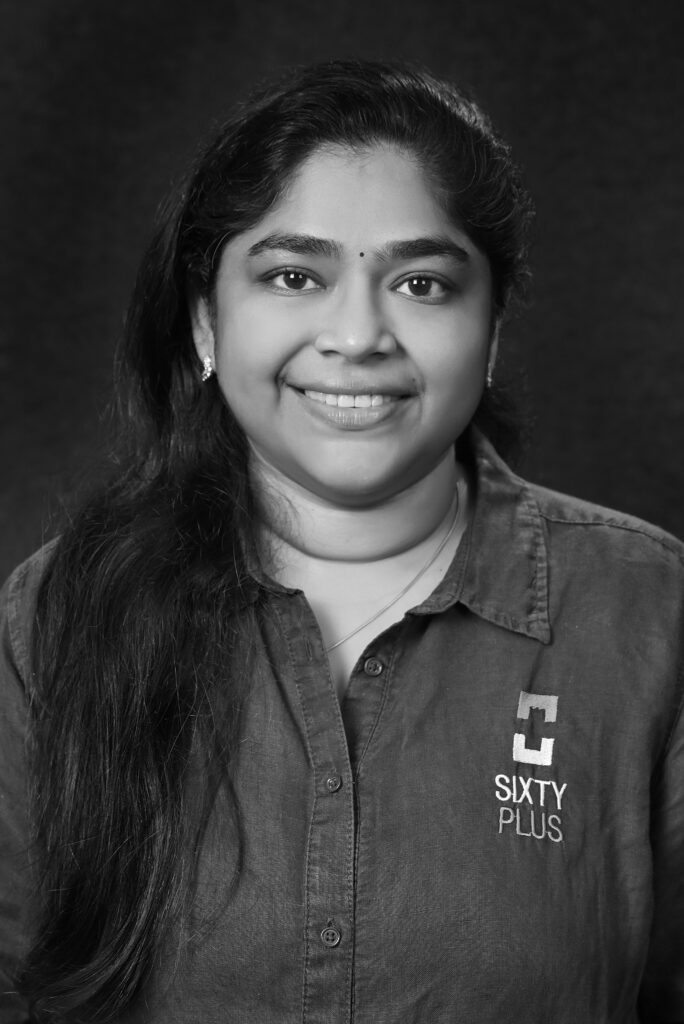
Shrilaxmi: How do you see technology reshaping eldercare in India in the next 5–10 years?
Mrs. Arasi Arul: Even now, adoption is high. My mother, in her 50s, books gas cylinders, uses apps, and manages digital payments. My grandmother, in her 80s, only watches YouTube—she says Tata Sky has too many ads!
Even people in remote villages in Tamil Nadu are using smartphones—watching videos, singing on Smule, chatting on WhatsApp. In 5 years, tech use among elders will no longer be a question—it will be the norm. It’s already at 70% for basic platforms like WhatsApp and YouTube.
So, I don’t see elder tech adoption as a challenge at all. The next generation of seniors is already tech-ready.
Women in Entrepreneurship
Shrilaxmi: What would you say to women who want to become entrepreneurs but are afraid of the risks?
Mrs. Arasi Arul: Entrepreneurship is risky. But so are jobs—you can be laid off with one phone call. That said, don’t do it unless you’re willing to give it your 100%, 24/7. That’s not gender-specific advice—it’s true for everyone.
I don’t usually differentiate between women and men founders, but I do have a soft corner for women entrepreneurs. That’s why I started TN W.O.M.E.N, which funds and mentors female-led startups. We’ve already funded 7 and plan to support many more by 2030.
Shrilaxmi: Do you think women face unique challenges in entrepreneurship?
Mrs. Arasi Arul: Yes, especially in balancing societal expectations and family duties. But these are the same challenges they face in traditional work environments too. The solution is more support and recognition, not doubt.

